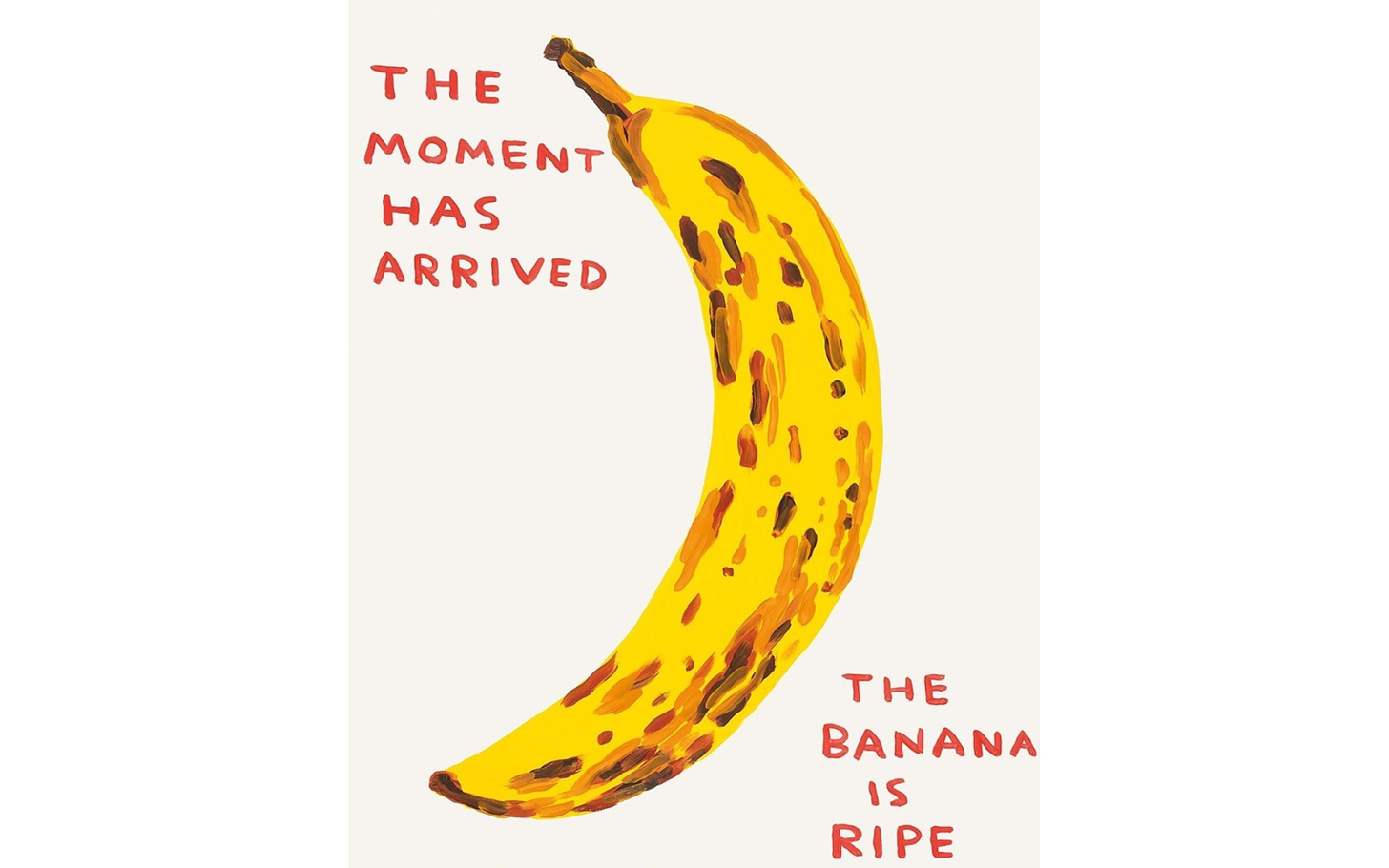I’m writing this from a quiet part of Northern California, not too far from where I grew up, where my parents currently live, and where I’m getting a much-needed change of scenery before the fall. It feels like an ideal time to introduce the idea of a revival, something I’ve been thinking about a lot lately.
In the world of shows, a revival is a new production of something that was created before. In general, it can mean “a restoration to vigor, to life, to sporting success.” The root of “revive” is the Latin revivere, which means to live again.
I continue to be struck by how many of the words I look up when talking about voice are all about living (see last week’s discussion on “conversation,” whose root means “living among”). It makes sense—especially because, as I shared last week, one of the ways I define voice is: you, in the world. Which is to say: you, alive in the world.
Revival is a relevant concept to the work of Ecstatic Voice, because I specifically developed the approach to support you in communicating your way through change of some kind: a shift in your career, a new season of your life, an integration of many versions of you into one. Like “revival,” a lot of the words of this work start with “re-”: refresh, reframe, revamp, reinvent.
What connects all of them is an experience of seeing yourself and your work with fresh eyes, which is very different than starting over. I don’t actually believe in starting over—I believe in continuing on in a renewed way (there’s that “re-” again), armed with an understanding of all of the gold you’ve gathered from everything you’ve done so far, and the ability to communicate its value.
In my ongoing humble quest to practice what I preach, I thought I’d revive a piece that I wrote over a year and a half ago: one that feels especially timely as we collectively turn our eyes towards a new season that can hold a lot of promise—and with it, a lot of pressure.
It’s easy for me to default to feeling insecure about things I’ve written or created in the past, and automatically assume that I’ll have lots of hindsight edits for my past self. But more often than not, I’m pleasantly surprised by the wisdom of me then, and a little bit in awe of how she somehow knew exactly what me now needs to be reminded of.
Speaking of humble quests, here’s a track of the same title by Maren Morris from a whole album that’s a beautiful take on looking forward and looking back, and living somewhere in between:
And here’s “Arriving,” written by me then, with a few notes from me now. I hope that it will help you continue on through whatever change you’re currently navigating, as you get to know the you who is already in the near future while bringing along the you from the not-so-distant past, who has given you so much gold to carry forward.
On the night before I’m about to take the lock screen off of the new Ecstatic Voice website and share it with the world, I find myself blankly staring at my laptop. The moment I’ve been patiently waiting for and wholeheartedly working toward (for months, years, a lifetime?) is finally here, and suddenly I don’t feel ready. In fact, I feel rather speechless. Me, who—as the very website I’m referring to shows—helps people talk about themselves and their work for a living, can’t seem to find the words.1
It’s not that there aren’t any words to find; if anything, there are more than enough. A galaxy of things to discuss about the process of creating the Ecstatic Voice website and developing the work it describes. But the problem isn’t figuring out how to articulate the path it took to get here. The problem is arriving.

Let’s talk about arriving, shall we? It’s supposed to be great. Arriving at a goal: fantastic! Arriving to your new job: hooray! Arriving to France for that solo vacation you’ve been planning forever: oui, oui!
Arrivals promise all kinds of wonderful things: the culmination of hard work, feelings of satisfaction and fulfillment, the opportunity to move forward and expand in new and improved ways. I live in a city that totally hypes up arriving. “They have arrived!” people say when someone gets a big break, and everyone oohs and aahs. Cue the celebratory everything.
But there’s another part of arriving that I don’t hear discussed a lot. It’s certainly not as shiny as celebration things—in fact, I find that it often shows up as a secret kind of feeling. Something along the lines of dread. Or grief. Or, in my case on the eve of launching the website, immobility.
I’m comforted by the fact that I know I’m not alone. There are signs all around me that arriving isn’t necessarily all bright lights and confetti. For one, a new year has just arrived,2 and social media is full of posts saying pretty much the same thing: I don’t want to do this yet.
Why can arriving be so tricky? Why, at the moment it’s time to at last come out into the light, can there also be a powerful desire to want to stay under the covers? What’s so hard about getting exactly where you were hoping to be?
In Crossing the Unknown Sea,3 a book by the poet David Whyte that would hands-down be one I’d take with me to a desert island, Whyte talks about arriving at a big moment in his career and feeling like his whole body was shutting down just as he was about to stand up and talk to a crowd of 600 people.
“Everything was in its place, it seemed,” he writes, “but me.”
He goes on:
The actual arrival at a goal always creates a turmoil unconnected to any previous imaginings. Once we cross from desire to actual fulfillment, we find that in order to inhabit the new world we have to slough off the identity that was so necessary to us as a seeker. At this point we may have become, over the years, so much the seeker that we cannot put that ever-moving, never-stopping, always-searching identity down in order to pick up anything new. We find the image of the seeker has become our ultimate defense against the intimacy of any new arrival. The promised land we thought we wanted suddenly seems to ask for a simplification of our character that seems too much too soon. Almost by definition,4 any real arrival always seems to occur too soon.5
It occurred to me that so much of the time we talk about the getting-there—the seeking, the striving, the struggling—and not so much about what to do once you’re actually there. How to not just own the fact that you’ve gotten where you wanted to go, but how to also step into the person that you now are because you have.
It’s kind of like if you’ve been going through the arduous and intricate work of, let’s say, making a hat.6 And it’s been this whole process: you’ve had to, I don’t know, learn how to cut felt into a hat pattern, and then do it 11 times because the first 10 were terrible, and then find the right feathers to stick into the band, and then steam it—I’ll stop; you get it—and finally it’s done, and it’s time for you to put on the hat. Which might at this point feel really weird, because it occurs to you that you’re not actually someone who wears hats, or has maybe ever worn a hat; you’re someone who dreams of wearing hats, and works hard to pursue the goal of making one of your own, but that’s very different from the type of person who just throws a hat on and strolls around in it, and so instead of putting on this beautiful and one-of-a-kind hat you’ve made with a sense of accomplishment, you find yourself eating a leftover box of Christmas chocolates and purchasing individual episodes of The Bachelor on Amazon Prime.7

In my experience, there can be an odd and disarming sense of loss at saying goodbye to that old version of you: the one who was tired and frustrated, yes, but also familiar. This new version might be glowy and brilliant and the truest you there ever was, but it’s still, at least right now, a stranger.
One of the first things I often do with clients is prompt them to think about and feel into the version of themselves that they are going to be once they get to where our work together is aiming them. It’s an identity that, once discovered, tends to come with bashful laughter or a sheepish apology at first. But I can always see, when we get beneath that old, familiar layer of defense, that there’s actually a lot of light.
I encourage them to continue to develop a tangible relationship with that light and follow it like a north star as we progress. I want them, when they arrive, to feel like they are reuniting with a dear friend whom they know and love and trust. It’s a version of self that, while strange at first, isn’t really new: it’s been there all along, waiting to be met and shared. In that way, you might say that any true arrival is not just an expansion—it’s also a homecoming.8
That’s certainly been my experience with my own arrival of bringing Ecstatic Voice into the world. And although some last-second-of-the-game hesitation has shown up, I know that’s just part of landing in this place that I’m so happy to call home. At last, too soon, and right on schedule, it’s time to open the door and invite you in. Cue the celebratory everything.
One request upon entry: Keep me away from Christmas chocolates and Amazon Prime for the next 24 hours.
Intermission
And with that, intermission has arrived! As you take a full-body stretch and enjoy a little in-between time, here’s a poll about how you might feel upon arriving to a new place, a new season, a new version of you:
Lake Street Dive is carrying us out with their cover of “You’re Still the One,” sung with so much heart and soul by the brilliant Akie Bermiss. I personally recommend playing it for your wise self from the not-so-distant past, as you celebrate how far you’ve come.
Wishing you a beautiful week. My next-week self and I will see you then.
P.S. As always, if you know someone who would enjoy The Ecstatic Review, please pass it along! All are welcome, and every voice makes this show that much fuller.
This is an earlier example of the irony I articulated in Act I — Just show up: how often I find myself living out a heightened version of a challenge I’m uniquely skilled at helping others tackle.
This also feels true right now on the verge of September, which I personally think of as my new year. (Big fan of back-to-school season over here.)
By now you know that I love roots of words, and the root of “arrival” is the Latin word adripa, which means “to shore”—like reaching the shore after a long voyage. That might be one of my favorite roots ever.
In the original version of this piece, I highlighted specific sentences in Whyte’s passage for emphasis and talked about how I read with a highlighter and a pencil. Substack doesn’t have highlighting or underlining functionality, which I’m taking as a sign to encourage seeing what parts of the passage resonate the most with you.
Very into hats, even before The Ecstatic Review began.
The hat story is hypothetical. The Christmas chocolates and Amazon Prime story is real.
Me now couldn’t have said it better.







